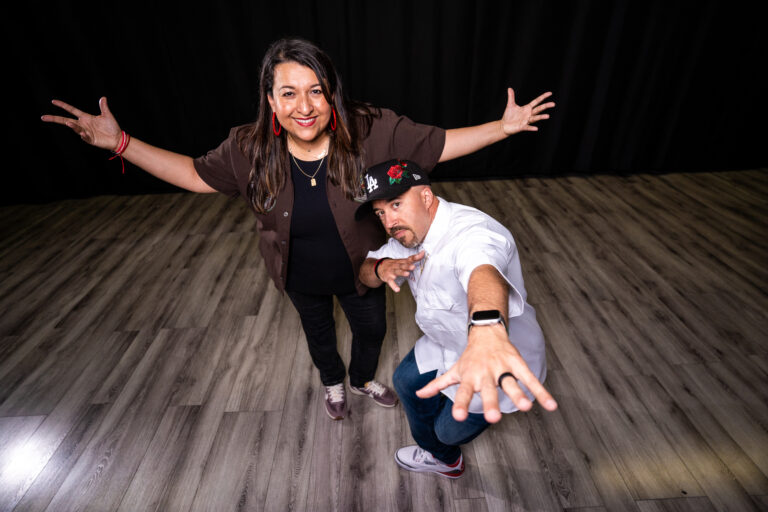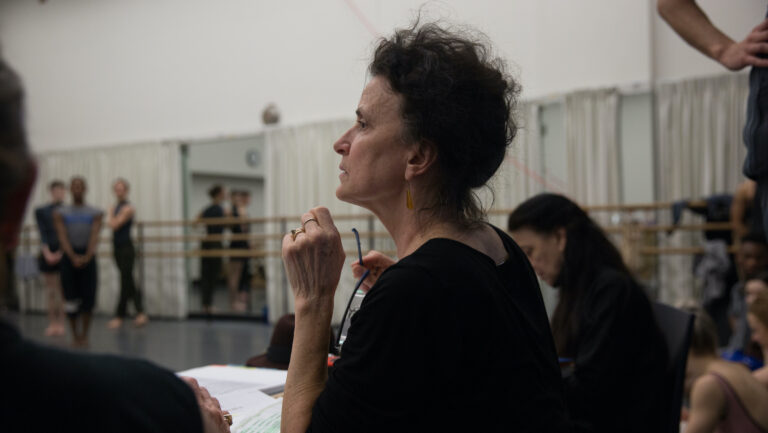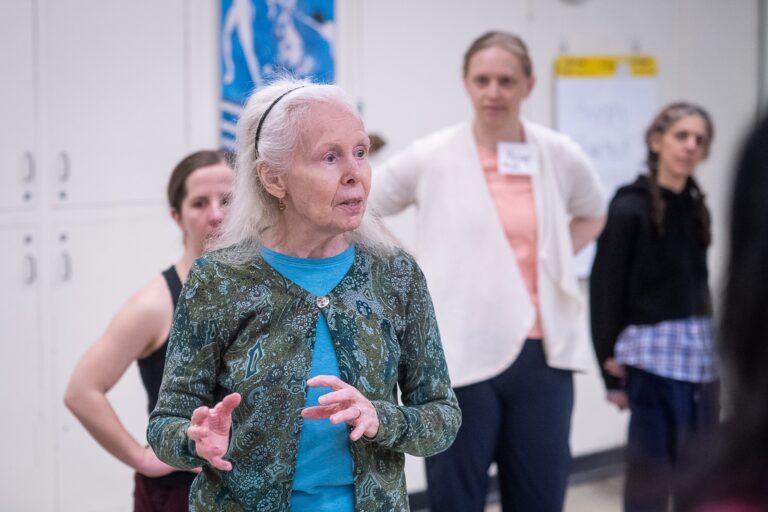
When Eva Encinias was hired by the University of New Mexico as an adjunct lecturer, there was no fully developed flamenco program within a university dance department anywhere in the U.S. Not only did she succeed in growing such a program, but she has also, over the last 45 years, cultivated a thriving flamenco community in Albuquerque and reinforced America’s presence on the global flamenco stage.
Born and raised in Albuquerque, Encinias learned to dance at an early age from her mother (Clara García de Aranda) through a “cross-training” of ballet, Classical Spanish, Mexican folk, tap, ballroom and flamenco. This broad foundation enabled her to pursue a dance degree at UNM, where she deeply engaged with a variety of ballet and modern dance techniques. She started teaching adjunct classes as a student and began the work of creating and strengthening the first undergraduate program in flamenco in the U.S.—eventually including beginner, intermediate and advanced levels—while balancing motherhood, teaching and her own performance career. Her choreography for her students blended their modern dance training with flamenco; she incorporated postmodern approaches to dancemaking and floor patterns.

But while these students were learning flamenco beyond an intensive or workshop, in 1985, Encinias realized something was missing. They were doing choreographies, but it lacked a flamenco “essence” rooted in “traditional” aspects of the form. “I knew that I had a larger responsibility not just to teach them my approach to flamenco but what flamenco truly is,” she says of how her approach shifted over the following decade. Students needed to learn traditional conventions of the form like the interaction between dance, singing and guitar, as well as basic structures of danced flamenco palos (rhythmic and melodic styles). Flamenco history, choreography, structure and improvisation, and repertory, as well as related forms of Spanish dance, were added to technique courses to build a more robust program of study.
Recognizing that she, as she says, “couldn’t be the ultimate authority,” Encinias extended her efforts far beyond UNM. She supported the work of U.S.-based flamenco artists by forming the first Festival Flamenco in 1987, which expanded to include artists from Spain in 1992; beginning in 2005, many artists who participated in the festival were hired as guest lecturers at UNM to expose students to different approaches to the form. After establishing the National Institute of Flamenco in 1992 to house her new endeavors for the community, she started the Conservatory of Flamenco Arts in 1999, which today offers community classes and a pre-professional training program for students ages 3 to 18. That same year, she founded Yjastros: The American Flamenco Repertory Company to give young artists performance opportunities. These projects were done alongside her children, Marisol and Joaquín Encinias. In recent years, the three have collaborated with the charter school Tierra Adentro of New Mexico, where Joaquín directs the arts curriculum, to offer daily flamenco arts education. Her tireless work building an entire arts education infrastructure and flamenco community developed Albuquerque into the international flamenco hub that it is today. Moving forward, her hope is to streamline the interface between the conservatory, charter school and university programs.

“She believes that there is power in numbers,” Marisol Encinias says of her mother’s community-based philosophy. “Get people in class, get people in the theater. Just get them there. The important thing is that they be exposed to the art form.”
Her love of teaching is palpably felt by her students. Ruth Rodriguez, a student in the Conservatory for Flamenco Arts’ youth program, notes how Ms. Eva (as they call her) has patience teaching steps, and an ability to make her students laugh. “She is always making sure you are dancing to the best of your ability,” she says. In the classroom, Encinias focuses not just on teaching steps and expressive range; students learn how to be a team, rely on one another and believe in themselves. Parker Chanin, another current Conservatory student, says that “she taught me spirit and gave me motivation,” while also encouraging her to learn vital skills in order to “pay attention and channel my hyper energy into dance.”
Encinias’ sense of community, as local as the studio and as global as the flight from Spain, knows no bounds. Reaching far beyond the classroom, she makes sure that Albuquerque keeps bailando and that the community traditions she has sown remain rooted for generations of flamenco performers to come.
Register here for the 2021 Dance Teacher Awards, taking place Wednesday, October 6, at 6 pm Eastern/3 pm Pacific. Meet the rest of the honorees here.






